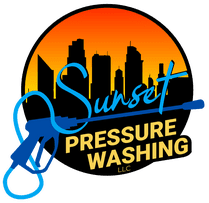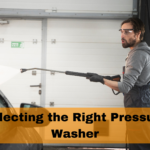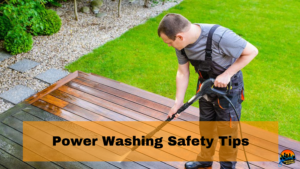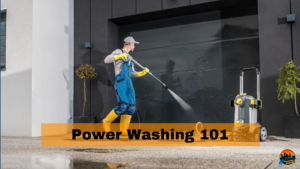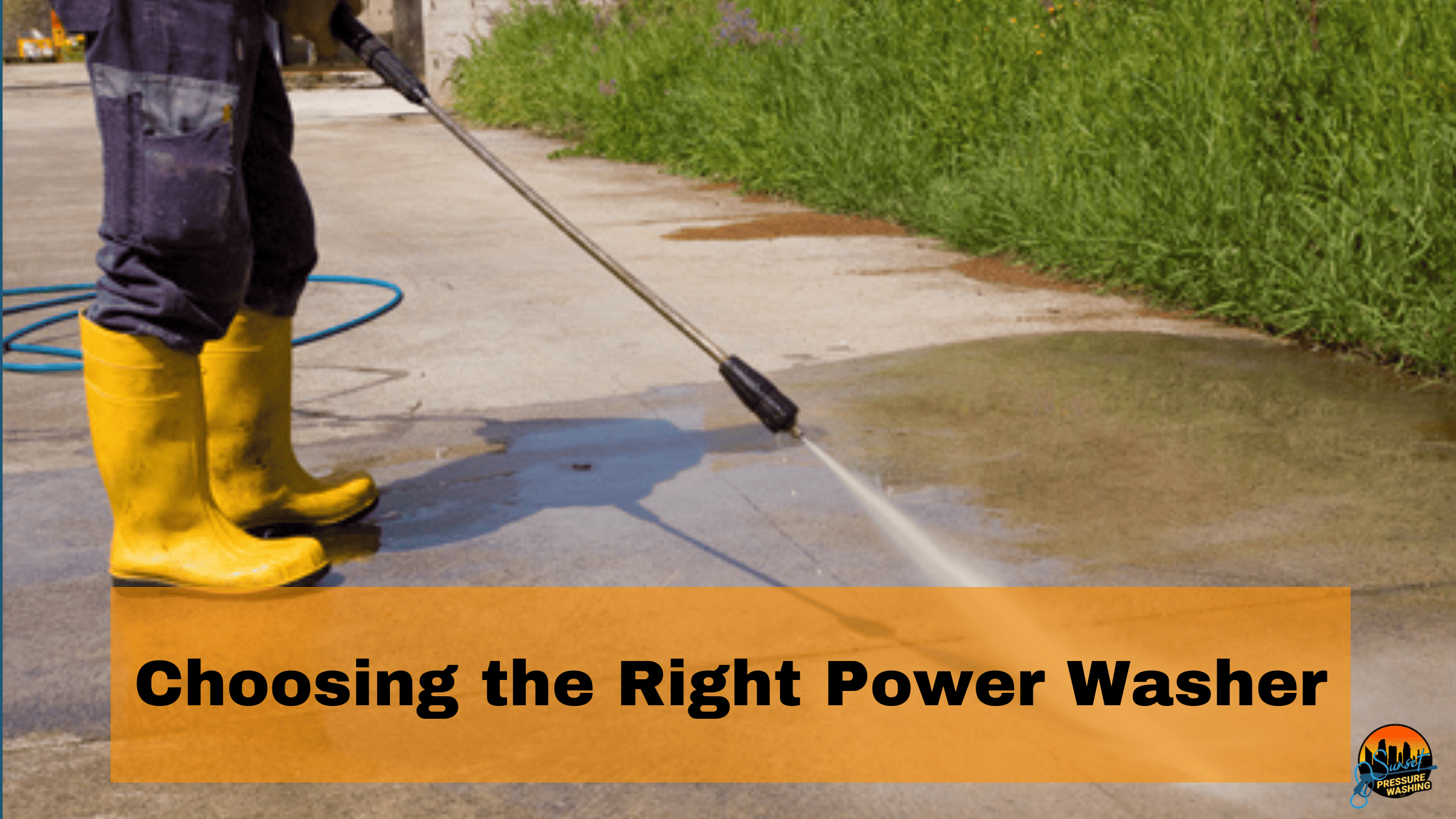
Choosing the Right Power Washer
Power washing is a highly effective way to clean outdoor surfaces, removing dirt, grime, and other build-ups that traditional cleaning methods can struggle with. However, with so many options available, choosing the right power washer for your needs can be overwhelming. This comprehensive guide will help you make an informed decision. Towards the end, we’ll also introduce you to Sunset Pressure Wash, a reliable option for those who prefer professional services.
Understanding Power Washers
Power washers, often referred to as pressure washers, are powerful cleaning tools that have revolutionized the way we clean various surfaces. They are incredibly efficient in removing dirt, mold, paint, and even stubborn grime that traditional cleaning methods can’t handle. To choose the right power washer, it’s essential to understand their basic mechanics, types, and applications.
How Power Washers Work
A power washer uses a high-pressure water spray to clean surfaces. It consists of a motor (either electric or gasoline-powered) that powers a water pump. The pump accelerates the water, supplied from a garden hose, to a high pressure, and then squirts it from a hose at speed through a trigger gun. You can attach various nozzles to the gun to control the water spray pattern.
Types of Power Washers
- Electric Power Washers: These are typically lighter, quieter, and easier to start compared to gas models. Electric power washers are perfect for light to medium-duty tasks such as cleaning cars, patio furniture, and small decks. They’re more suitable for residential use due to their lower PSI (Pounds per Square Inch) ratings.
- Gas Power Washers: Gas models are more powerful and can handle tougher cleaning jobs like stripping paint, cleaning large decks, and sidewalks. They offer higher PSI and GPM (Gallons Per Minute) ratings, making them suitable for heavy-duty or commercial use. However, they’re louder, heavier, and require more maintenance than electric models.
PSI and GPM
Understanding PSI and GPM is crucial in selecting a power washer:
- PSI (Pounds per Square Inch): This measures the pressure of water created through the power washer. A higher PSI means more force to blast away dirt and stains.
- GPM (Gallons Per Minute): This indicates the flow rate of water. A higher GPM cleans faster, as more water is being released through the power washer.
The combination of PSI and GPM determines the cleaning power of a power washer. A unit with a higher combination of these two will be more efficient in tackling tough cleaning jobs.
Applications
Power washers can be used for a wide range of cleaning tasks, including:
- Residential Cleaning: Ideal for cleaning decks, patios, siding, fences, cars, and boats.
- Commercial Cleaning: Used in commercial settings to clean larger areas like parking lots, commercial vehicles, and heavy equipment.
- Industrial Cleaning: For more intense cleaning requirements like removing graffiti, cleaning construction sites, and heavy machinery.
Choosing the Right Power Washer
Selecting the right power washer depends on the nature and frequency of the tasks you plan to undertake. For occasional, light-duty tasks, an electric model might be sufficient. However, for more frequent or heavy-duty tasks, a gas-powered model would be more appropriate.
Electric vs. Gas Power Washers
When selecting a power washer, one of the primary decisions you’ll face is choosing between an electric and a gas-powered model. Each type has its advantages and disadvantages, and the right choice depends on your specific needs, preferences, and the kind of tasks you intend to tackle. Here’s a detailed comparison to help you make an informed decision.
Electric Power Washers
Pros
- Quiet Operation: Electric power washers are significantly quieter compared to their gas counterparts, making them more suitable for residential areas where noise can be a concern.
- Lightweight and Portable: They are generally lighter and easier to maneuver, ideal for those who may have difficulty with heavier equipment.
- Low Maintenance: Electric models require less maintenance. There’s no need to deal with fuel, oil changes, or regular engine maintenance.
- Environmentally Friendly: They emit no exhaust fumes, making them a more eco-friendly option.
- Ease of Use: Electric power washers can be easily started with the push of a button, making them very user-friendly.
Cons:
- Limited Power: They typically offer lower PSI and GPM, meaning less cleaning power compared to gas models. Suitable mostly for light to medium-duty tasks.
- Dependence on Power Source: You need to be near an electrical outlet to use them, which can limit mobility and range.
Gas Power Washers
Pros:
- More Power: Gas models usually provide higher PSI and GPM, resulting in more cleaning power. This makes them ideal for heavy-duty tasks like cleaning concrete, stripping paint, and large area surface cleaning.
- Greater Mobility: Since they’re not tethered to a power outlet, gas power washers offer greater mobility and can be used in more remote locations.
- Suitable for Larger Jobs: The added power and mobility make gas power washers better suited for extensive and demanding tasks, often seen in commercial and industrial settings.
Cons:
- Noisier: They are significantly louder, which might be an issue in noise-sensitive environments.
- Heavier and Bulkier: This can make them harder to transport and use, especially for those who might have physical constraints.
- Higher Maintenance: Gas engines require regular maintenance, including oil changes, fuel management, and winterizing.
- Emissions: Gas power washers emit exhaust, which is less environmentally friendly and can be a concern in enclosed spaces.
Making the Right Choice
To decide between an electric and a gas power washer, consider the following:
- Intensity and Frequency of Use: If you need a washer for light, infrequent tasks, an electric model should suffice. For more demanding or frequent tasks, a gas model is better suited.
- Location and Accessibility: If you’ll be working in an area without easy access to electricity, a gas power washer is your best bet.
- Noise Tolerance: If you’re in a residential area or a noise-sensitive environment, an electric model is preferable.
- Environmental Concerns: If you’re conscious about environmental impact, you might lean towards an electric model.
Understanding PSI and GPM
When choosing a power washer, two of the most critical specifications to understand are PSI (Pounds per Square Inch) and GPM (Gallons Per Minute). These metrics determine the effectiveness of the power washer and are crucial in selecting the right one for your needs.
PSI (Pounds per Square Inch)
- Definition: PSI measures the pressure of water delivered by the power washer. It indicates the force with which the water hits the surface being cleaned.
- Importance: A higher PSI means more power to break up and remove dirt and grime. However, too much pressure can damage some surfaces. It’s essential to choose a power washer with a PSI level appropriate for the job.
Typical Usage:
- Light-Duty (1,300 to 1,900 PSI): Ideal for washing cars, outdoor furniture, or small decks.
- Medium-Duty (2,000 to 2,800 PSI): Suitable for cleaning fences, sidewalks, and driveways.
- Heavy-Duty (2,900 to 3,300+ PSI): Best for large areas like extra dirty or large driveways, and for stripping paint.
GPM (Gallons Per Minute)
- Definition: GPM measures the flow rate of water coming out of the power washer. It indicates how much water is used during the cleaning process.
- Importance: A higher GPM cleans faster because it covers more area by delivering more water. It’s not just about the force (PSI) but also how much water is used to wash away the debris.
- Balancing PSI and GPM: The effectiveness of a power washer is determined by both PSI and GPM. A balance between the two is essential for efficient cleaning. For instance, a machine with high PSI but low GPM might have a strong spray but wouldn’t clean as quickly as one with a balanced PSI and GPM.
Nozzle Types and Uses
Choosing the right nozzle for your power washer is crucial for effective and safe cleaning. Power washer nozzles control the angle and intensity of the water stream. Understanding the different types of nozzles and their specific uses can greatly enhance your cleaning efficiency and prevent damage to surfaces.
Standard Nozzle Types
0-Degree (Red Nozzle):
- Description: Delivers a pinpoint, high-pressure jet of water.
- Uses: Ideal for removing tough stains and debris from hard surfaces like concrete. Be cautious, as its intense pressure can damage softer surfaces.
15-Degree (Yellow Nozzle):
- Description: Offers a slightly wider angle, suitable for heavy-duty cleaning.
- Uses: Perfect for stripping paint, cleaning concrete, and preparing surfaces for painting.
25-Degree (Green Nozzle):
- Description: Provides a wider spray, which distributes pressure over a larger area.
- Uses: Great for general cleaning tasks like decks, sidewalks, and driveways. It’s effective yet gentle enough to prevent damage to wood and other softer surfaces.
40-Degree (White Nozzle):
- Description: Has the widest angle, reducing pressure for gentle cleaning.
- Uses: Ideal for washing windows, cars, and other delicate surfaces where a gentler touch is needed.
65-Degree (Black Nozzle):
- Description: Typically a low-pressure nozzle used for applying soap or detergents.
- Uses: Used in pre-cleaning stages to apply cleaning agents on surfaces before power washing.
Specialized Nozzle Types
Turbo/Rotary Nozzle:
- Description: Combines the power of a 0-degree nozzle with the coverage of a 25-degree nozzle. It spins in a circular motion to create a larger cleaning area.
- Uses: Effective for tough jobs like cleaning concrete, removing graffiti, or stubborn stains.
Adjustable Nozzle:
- Description: Allows you to adjust the spray pattern without changing the nozzle.
- Uses: Versatile for various tasks, enabling quick adjustments between different cleaning requirements.
Choosing the Right Nozzle
- Consider the Surface: Softer materials like wood or siding require a wider angle nozzle to prevent damage. Hard surfaces like concrete can handle narrower angles.
- Cleaning Task: For removing loose dirt or washing cars, use a wider angle nozzle. For tough stains or paint removal, a narrower angle is more effective.
- Safety First: Always start with a nozzle that has a wider spray angle and test on a small area. High-pressure streams can cause damage or injury if not used properly.
Choosing the Right Nozzle
- Test the Surface: Always test a small, inconspicuous area first to ensure the surface can withstand the pressure.
- Maintain Distance: Keep the nozzle at a safe distance from the surface to prevent damage.
- Wear Protective Gear: Eye protection and appropriate clothing are essential to safeguard against debris and high-pressure water.
Safety Considerations
Using a power washer requires mindfulness of safety to protect both the user and the surroundings. Power washers can be dangerous tools if not handled correctly, given their high-pressure water streams. Here are essential safety considerations to keep in mind.
Personal Protective Equipment (PPE)
- Eye Protection: Always wear goggles or safety glasses to protect your eyes from debris dislodged by the high-pressure water.
- Protective Clothing: Wear long pants and sturdy footwear, preferably waterproof, to protect your skin from the high-pressure stream and any flying debris.
- Ear Protection: If using a gas power washer, consider using ear protection to safeguard against prolonged exposure to loud noise.
Awareness of Surroundings
- Clear the Area: Before starting, remove any tripping hazards and ensure the area is clear of other people, especially children and pets.
- Surface Hazards: Be aware of slippery surfaces, especially when wet. Use caution to avoid slips and falls.
- Electrical Safety: Be cautious around electrical outlets, devices, and power lines, especially with electric power washers.
Proper Handling of the Equipment
- Read the Manual: Familiarize yourself with the power washer’s operation by reading the manufacturer’s instructions thoroughly.
- Handle with Two Hands: Always use both hands to control the power washer wand for stability and control.
- Avoid Ladders: The recoil from the wand can lead to loss of balance. Use extensions or attachments for high areas instead of climbing ladders.
Correct Usage
- Use Appropriate Settings: Match the pressure settings and nozzles to the task at hand to avoid damage to the surface and reduce risk.
- Start with Lower Pressure: Begin with the lowest pressure setting and increase gradually as needed.
- Never Point at People or Animals: The high-pressure stream can cause serious injury. Never direct the water stream towards any person or animal.
Maintenance and Storage
- Regular Check-ups: Regularly inspect your power washer for any signs of wear or damage, especially the hose and connectors.
- Proper Storage: Store the power washer in a dry, safe place away from children. Ensure it’s disconnected from power sources and that all water is drained from the system.
- Winterizing: If you live in a cold climate, make sure to winterize your power washer to prevent damage from freezing temperatures.
Additional Features to Consider
When selecting a power washer, apart from the primary specifications like PSI and GPM, there are several additional features that can enhance functionality, convenience, and overall user experience. Considering these features can lead to a more tailored choice that meets your specific needs.
Adjustable Pressure
- Description: Some power washers come with adjustable pressure settings, allowing you to switch between high and low pressure.
- Benefit: This feature is particularly useful for tackling a variety of tasks with a single machine, from delicate surfaces to more robust cleaning jobs.
Onboard Storage
- Description: Storage compartments or hooks for holding nozzles, hoses, and power cords.
- Benefit: Enhances convenience and organization, making it easy to keep all accessories in one place and prevent loss or damage.
Hose Length and Quality
- Description: The length and durability of the hose can greatly impact usability.
- Benefit: A longer hose increases your reach without moving the unit, and a high-quality hose is less prone to kinking and damage.
Detergent Injection System
- Description: Some models include a system for mixing detergent with the water stream.
- Benefit: This is useful for cleaning tasks that require soap or chemical solutions, providing an effective and even application.
Pump Type
- Description: The type of pump used (axial cam, triplex, etc.) can affect the performance and longevity of the power washer.
- Benefit: Higher-quality pumps like triplex pumps tend to last longer and are better for frequent or heavy-duty use.
Water Inlet Filter
- Description: A filter where the hose connects to the power washer, preventing debris from entering the pump.
- Benefit: Protects the pump from damage caused by dirt and debris, extending the life of the machine.
Thermal Relief
- Description: A feature that helps to cool the water inside the pump if it gets too hot.
- Benefit: Prevents overheating and potential damage to the power washer, especially during extended use.
Portability
- Description: Features like wheels and handles.
- Benefit: Enhances mobility and ease of transportation, especially for heavier gas-powered models.
Maintenance and Storage
Proper maintenance and storage of your power washer are essential to ensure its longevity and optimal performance. Regular upkeep not only extends the life of the machine but also keeps it safe and efficient for each use. Here’s a guide to maintaining and storing your power washer.
Regular Maintenance
Cleaning the Power Washer
- After Each Use: Rinse off any dirt or debris from the machine. Clean the nozzles with a needle to remove any blockages.
- Detergent Residue: If you’ve used detergent, flush the system to prevent any residue build-up.
Inspecting and Replacing Parts
- Hoses and Connections: Regularly check for cracks, leaks, or wear and replace if necessary.
- O-Rings: Inspect O-rings in hose connections and replace them if they are damaged to prevent leaks.
- Air Filter (Gas Models): Clean or replace the air filter as recommended by the manufacturer.
Engine Maintenance (for Gas Models)
- Oil Level: Check and change the engine oil as per the manufacturer’s guidelines.
- Spark Plug: Inspect the spark plug for wear and replace it if needed.
- Fuel: Use fresh fuel and consider a fuel stabilizer to prevent corrosion.
Proper Storage
Winterizing
- Cold Climates: In freezing temperatures, it’s important to protect your power washer from frost damage. Use antifreeze designated for power washers or run a pump-saver through the system.
- Drain Water: Ensure all water is drained from the pump, hoses, and gun to prevent freezing and cracking.
Storing the Power Washer
- Dry Location: Store your power washer in a dry, clean area away from dust and dirt.
- Upright Position: Keep it in an upright position to prevent oil or fuel leakage.
- Cover: Use a cover to protect it from dust and debris.
Electrical Considerations (for Electric Models)
- Power Cord: Coil the power cord without kinks and store it away from sharp edges.
- Moisture: Ensure the storage area is free from moisture to prevent electrical damage.
Safety Precautions
- Disconnect Power: Always disconnect electric models from the power supply before performing any maintenance.
- Fuel Safety: For gas models, ensure proper ventilation and avoid any flame sources when checking fuel-related components.
Cost vs. Quality
When shopping for a power washer, balancing cost and quality is a crucial consideration. While it’s tempting to opt for the cheapest model available, it’s important to evaluate how the quality of the product aligns with your needs. Here’s a breakdown of how cost and quality interplay in the world of power washers.
Initial Investment
- Lower-Cost Models: Typically, less expensive power washers are designed for light-duty tasks and infrequent use. They often have lower PSI and GPM ratings and are made with less durable materials.
- Higher-Cost Models: More expensive models are generally more robust, offering higher PSI and GPM, longer-lasting pumps, and additional features like adjustable pressure settings and better hose quality.
Durability and Longevity
- Quality Materials: Higher-priced power washers are usually built with higher quality materials that withstand frequent use and harsh conditions. This means they are less likely to break down and need fewer repairs over time.
- Maintenance Costs: Cheaper models might require more frequent maintenance or replacement parts, which can add up over time.
Performance and Efficiency
- Cleaning Efficiency: Higher-quality models are typically more powerful and efficient, allowing for quicker and more effective cleaning.
- Versatility: More expensive power washers often come with various nozzles and features that can handle a wider range of cleaning tasks.
Warranty and Customer Support
- Warranty Period: Higher-quality power washers usually come with longer and more comprehensive warranties.
- Customer Service: Reputable brands often provide better customer service, offering assistance with repairs, maintenance, and usage tips.
The Right Balance
- Needs Assessment: Consider how often you will use the power washer and for what types of tasks. If you need a power washer for occasional, light-duty work, a lower-cost model might suffice.
- Long-Term Investment: For frequent or heavy-duty use, investing in a higher-quality model can be more cost-effective in the long run, thanks to its durability and efficiency.
Reading Reviews and Seeking Recommendations
When it comes to purchasing a power washer, leveraging the experiences and insights of others can be incredibly valuable. Reading reviews and seeking recommendations helps in making an informed decision, ensuring that you select a product that meets your expectations in terms of performance, durability, and value for money.
Importance of Customer Reviews
- Real-World Insight: Reviews provide firsthand experiences from users who have already purchased and used the power washer. This insight is invaluable in understanding the product’s performance in real-world conditions.
- Identifying Common Issues: Customer reviews can highlight recurring problems with a model, such as durability concerns or defects, which might not be apparent in product descriptions.
- Balanced Perspective: Professional reviews are helpful, but they might not always cover the long-term use aspects that regular users can provide.
Utilizing Professional Reviews
- Expert Analysis: Professional reviews, often found on consumer websites or in trade magazines, provide a detailed analysis of a power washer’s features, performance, and comparison with other models.
- Testing Under Controlled Conditions: Experts typically test these machines under various conditions, giving a clear picture of their capabilities and limitations.
Seeking Recommendations
- Friends and Family: Ask people in your network who have used power washers for their recommendations. Personal experiences can often lead to honest and practical advice.
- Online Forums and Social Media: Online communities and social media groups dedicated to home improvement and cleaning can be excellent resources for unbiased recommendations.
- Local Hardware Stores: Staff at hardware stores often have a wealth of knowledge about different power washers and can provide recommendations based on your specific needs.
When to Hire Professionals
While owning a power washer offers the convenience of handling cleaning tasks independently, there are situations where hiring professional cleaning services is more prudent. Understanding when to call in the experts can save you time, ensure safety, and provide optimal cleaning results. Here’s a guide to help you decide when it’s time to hire professional power washing services.
Large-Scale or Complex Projects
- Extensive Areas: For large-scale projects like cleaning the exterior of a big commercial building or a spacious residential property, professionals can handle the task more efficiently.
- Complex Surfaces: Professionals are equipped to deal with complex surfaces, such as intricate brickwork, delicate stonework, or hard-to-reach areas.
Safety Concerns
- Height: Cleaning at heights, such as second-story walls or gutters, poses significant safety risks. Professionals have the necessary equipment and training to safely handle these tasks.
- Hazardous Materials: If the cleaning involves the removal of hazardous materials like lead-based paint or mold, professional expertise is crucial to handle the job safely and compliantly.
Specialized Cleaning Requirements
- Industrial Equipment: Cleaning industrial equipment often requires specialized knowledge and tools that professional services possess.
- Historical Buildings: Older or historical buildings might require special care or techniques to avoid damage, which professionals are trained to provide.
Time and Cost Efficiency
- Time-Saving: Hiring professionals can be more time-efficient, especially for busy individuals or businesses.
- Cost-Effective in the Long Run: While DIY might seem cheaper, improper use of a power washer can lead to costly damages. Professionals ensure the job is done right the first time.
Lack of Proper Equipment
- High-Performance Equipment: Professional services have access to high-grade, commercial power washers and cleaning solutions that might not be feasible for the average homeowner to purchase.
- Customized Tools: Professionals often have customized tools and attachments for specific tasks, which can significantly enhance cleaning quality.
Introducing Sunset Pressure Wash
Are you looking for a reliable and professional power washing service? Look no further than Sunset Pressure Wash. With a reputation for excellence and a commitment to delivering outstanding results, Sunset Pressure Wash stands out as a premier choice for all your power washing needs. Here’s why you should consider them for your next cleaning project:
Sunset Pressure Wash employs a team of experienced professionals who understand the nuances of power washing. Whether you need residential or commercial cleaning, their experts are equipped with the latest technology and know-how to tackle any project, big or small. Visit Sunset Pressure Wash to learn more about their services and see why they are the trusted choice for power washing.
From revitalizing residential exteriors to deep-cleaning commercial spaces, Sunset Pressure Wash offers a wide range of services. They specialize in removing grime, dirt, and mildew, ensuring your property looks its best. Explore their array of services at Sunset Pressure Wash Services to find the perfect solution for your needs. At Sunset Pressure Wash, customer satisfaction is a top priority. They take pride in their work and are dedicated to providing the highest quality service. You can expect professionalism, punctuality, and outstanding results with every project they undertake. Schedule your service easily and conveniently to experience the exceptional service and results that only Sunset Pressure Wash can provide.
